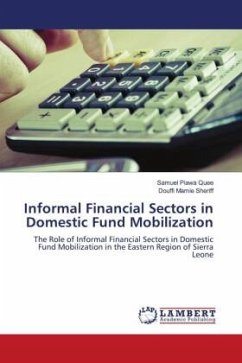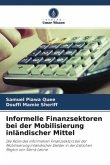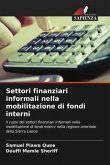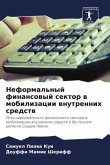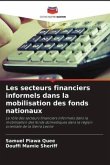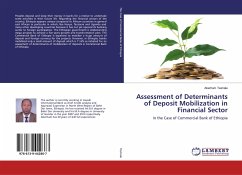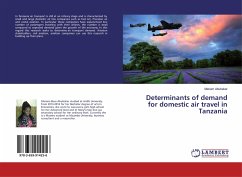This book examines why and how informal finance fits into the financial system of Sierra Leone. The subject matter of this book follows on from a body of literature that emerged in the late 1990s relating to sub-Saharan African (SSA) economies specifically to Ghana, Nigeria, Malawi, and Tanzania on the impact of liberalisation reforms on the financial sectors of these economies. According to the financial repression hypothesis, the existence of large informal financial sectors is due to repressive financial systems. That is, where interest rate ceilings are being set and credit allocated by the state, a large proportion of the populace are being excluded from utilizing formal credit services-including the poor, micro and small businesses or generally sections of the populace who do not have ties to the political elites. As a result, this section of the population have no alternative but to turn to informal means of accessing credit such as family, friends or being part of informal savings and credit clubs such as Rotating Savings and Credit Associations (RoSCAs), Susu groups or Osusu groups as they are known in Sierra Leone.
Bitte wählen Sie Ihr Anliegen aus.
Rechnungen
Retourenschein anfordern
Bestellstatus
Storno

